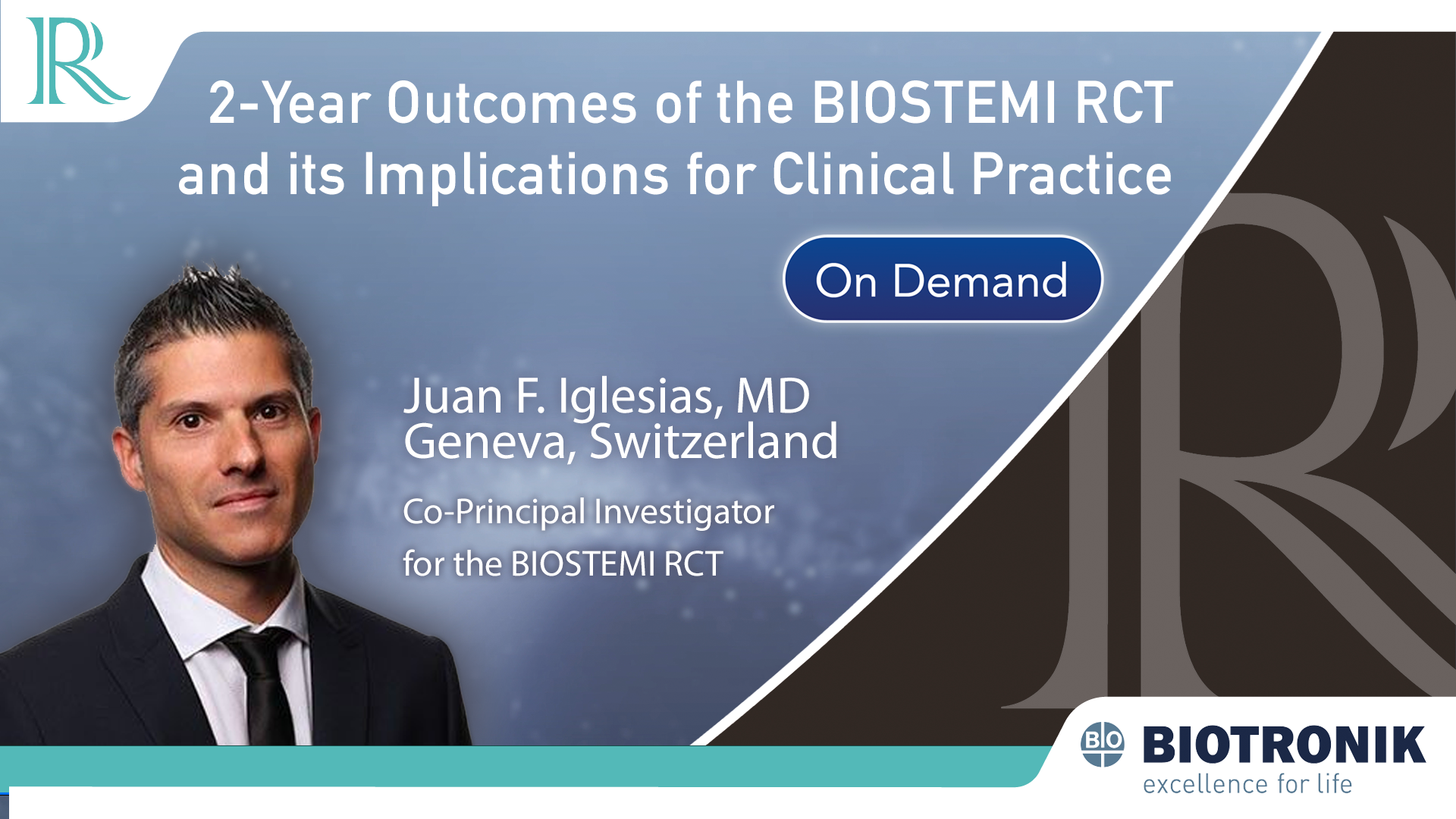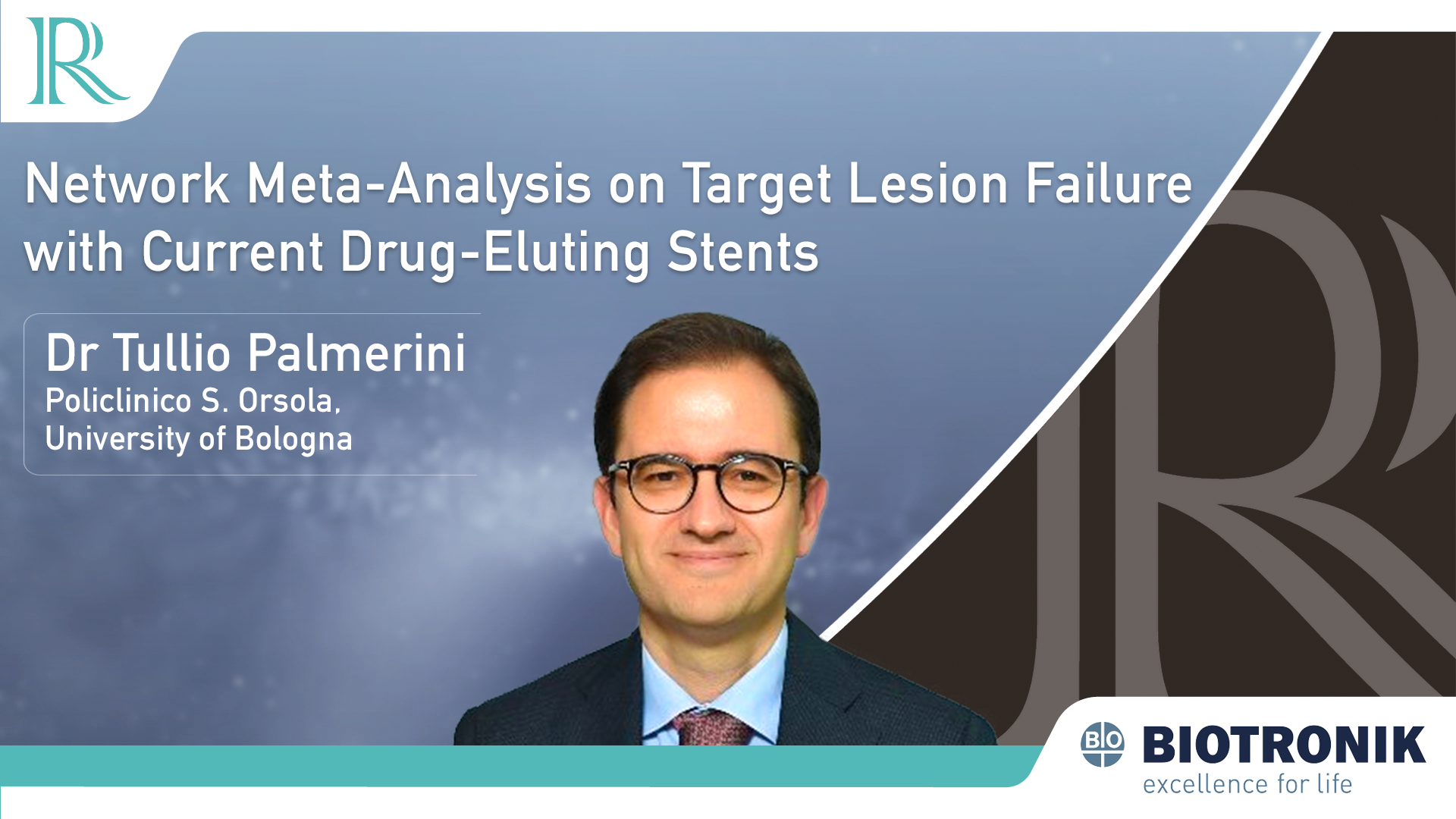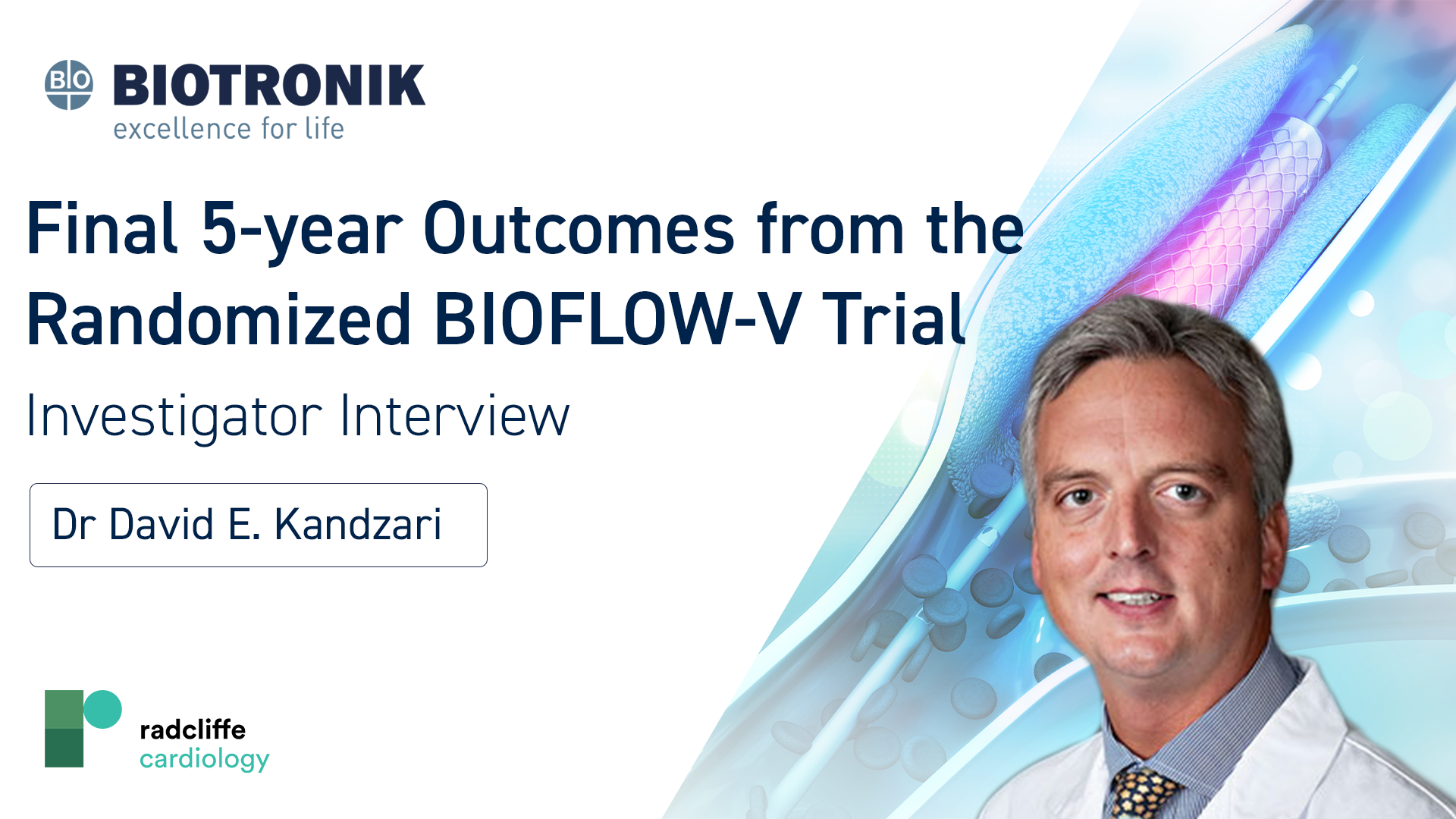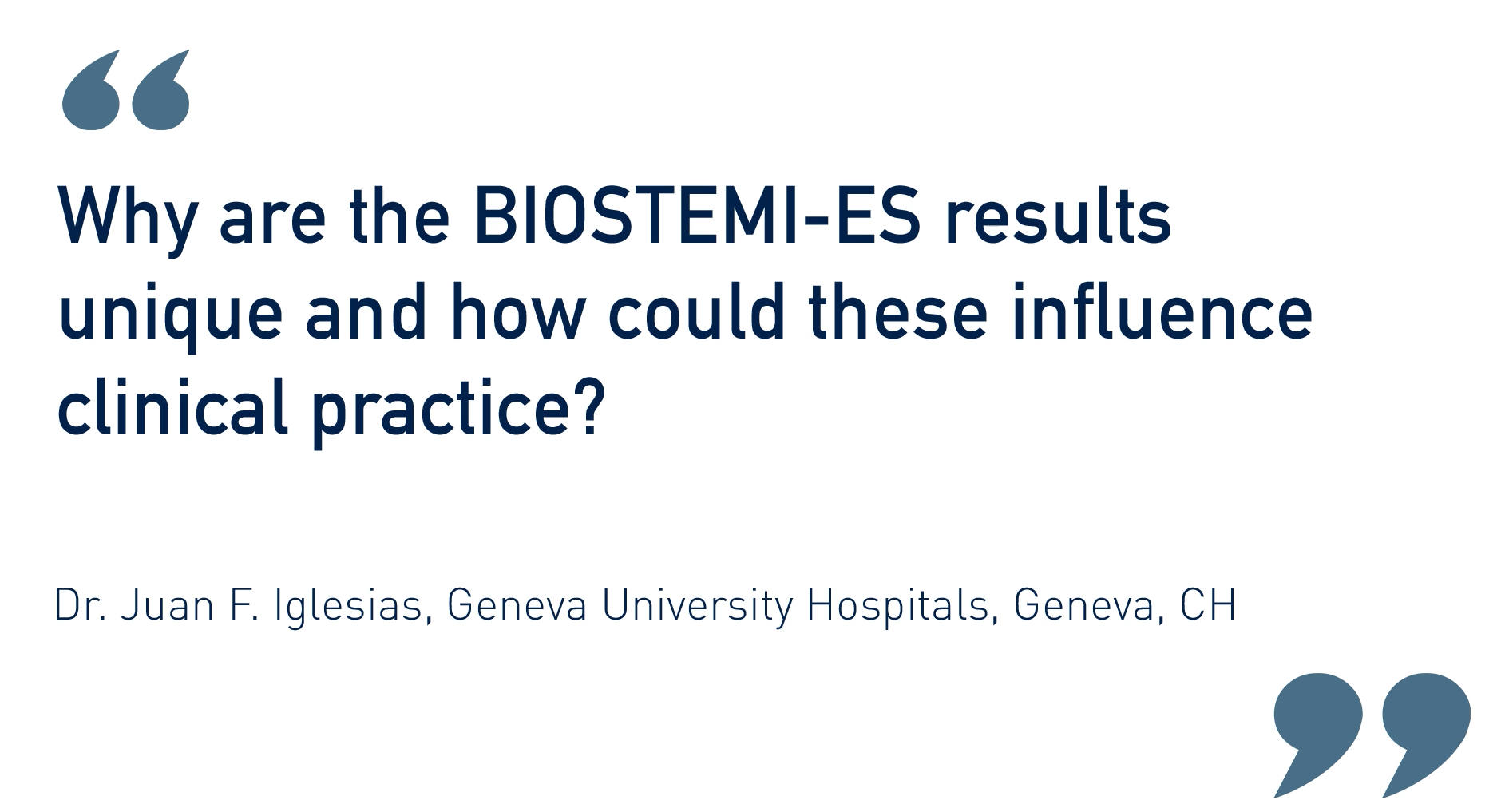Superiority data in DES – are all stents non-inferior?
Published: 14 September 2021
-
Views:
 781
781
-
Likes:
 7
7
-
Views:
 781
781
-
Likes:
 7
7
Overview
In the field of drug eluting stents, we have grown used to non-inferiority studies. Two recent publications highlight that one stent may offer real clinical benefits over other contemporary DES. Listen to the trial investigators talk about these two new studies with the potential to change our understanding of the DES landscape.
“The history of drug eluting stents has taught us that we cannot really talk about class effect when we are addressing the results of one single drug eluting stent, because the DES is unique in that it has a specific platform, polymer, and drug. Therefore, if some results apply to one kind of drug eluting stent, they do not necessarily apply to DES that have some similar components.” Dr. Tullio Palmerini
BIOSTEMI RCT is the first direct comparison between two newer generation DES in patients with acute ST-segment elevation myocardial infarction (STEMI). Learn about the superiority of Orsiro in STEMI regarding Target Lesion Failure at 24 months.
The Network Meta-Analysis on Target Lesion Failure With Current Drug-Eluting Stents conducted by Taglieri et. al. analyzed 99’039 patients in 77 randomized controlled trials (RCT) comparing Orsiro and 9 other currently used DES. See the key learnings and find out more about Orsiro having the highest probability (70.8%) to rank as the best stent, based on SUCRA (Surface Under the Cumulative Ranking Curve) score.
Dr. Juan F. Iglesias (Co-Principal Investigator of the BIOSTEMI RCT, Geneva University Hospitals, Geneva, Switzerland), presents the clinical data results at 24 months and speaks about the superiority in STEMI patients and its benefits for Orsiro DES.
Dr. Tullio Palmerini (Principal Investigator of the Taglieri et a. Network Meta-Analysis, Policlinico S. Orsola, Bologna, Italy) presents the outcome of the recent network meta-analysis on Target Lesion Failure With Current Drug-Eluting Stents .
Dr. David Kandzari reviews the long-term outcomes of the BIOFLOW-V randomized controlled trial, comparing the outcomes of Orsiro ultrathin-strut DES to the Xience thin-strut DES. As principal investigator, he shares his insights from the trial and its implications to everyday practice.
Intended for healthcare professionals only. This program is supported by BIOTRONIK. Views and opinions expressed in the program belong to the authors and speakers. Allied Health Professionals

More from this programme
Part 1
BIOSTEMI RCT – Superiority in STEMI
| 1 session | |
| BIOSTEMI RCT – Superiority in STEMI | Watch now |
Part 2
Network Meta-Analysis on Target Lesion Failure With Current Drug-Eluting Stents (Taglieri et. al.)
Part 3
Final 5-year Outcomes from the Randomized BIOFLOW-V Trial
Part 4
BIOSTEMI ES RCT: Long-term outcomes with Orsiro DES versus Xience DES in STEMI patients
Dr Juan F. Iglesias, Principal Investigator of the BIOSTEMI ES trial, presents the 5-year outcomes of the BIOSTEMI ES RCT, sharing his insight from the trial and its implications to everyday clinical practice.
Faculty Biographies
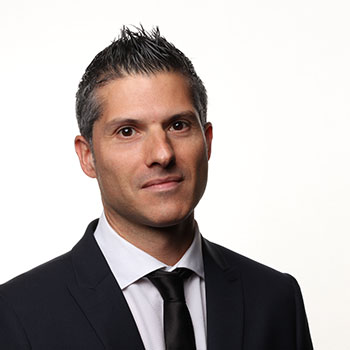
Juan F Iglesias
MD
Dr Juan F. Iglesias is an interventional cardiologist at Geneva University Hospitals and Privat Docent at the University of Geneva, Switzerland. He obtained his medical degree at Lausanne University Hospitals in Switzerland and completed his general and interventional cardiology training at the same institution, at the London Chest Hospital (Barts Health NHS Trust, London, United Kingdom) and at Hammersmith Hospital (Imperial College Healthcare NHS Trust, London, United Kingdom). He is board certified in general cardiology at Lausanne University Hospital and specialized in interventional cardiology with a focus on complex and high-risk percutaneous coronary interventions including chronic total occlusions, intravascular imaging, and invasive coronary physiology. Dr Iglesias works as a consultant in interventional cardiology at Geneva University Hospitals. He is fellow of the European Society of Cardiology (FESC) and the American College of Cardiology (FACC). Having…
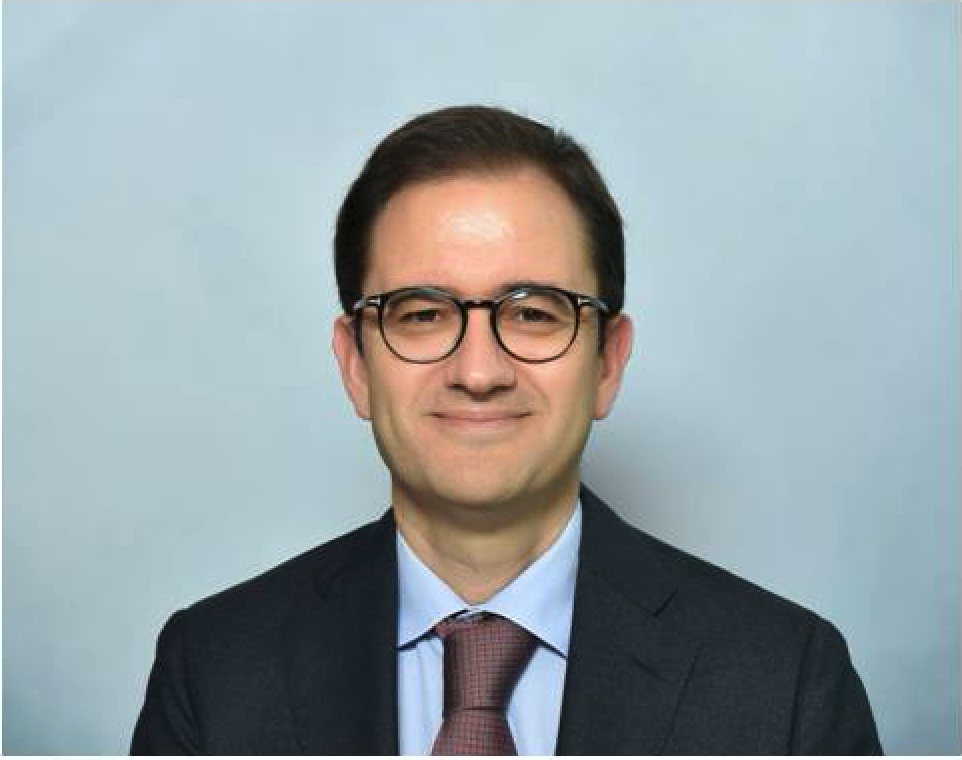
Tullio Palmerini
Policlinico S.Orsola, Bologna, Italy
Dr Tullio Palmerini is an interventional cardiologist at Policlinico S.Orsola, Bologna, Italy.
He graduated in Medicine in 1992 at “La Sapienza University”, in Rome; Italy, and got the specialty in Cardiology in 1996 at “Alma Mater University”, in Bologna, Italy.
He did a research fellowship in 1998 at Mount Sinai Hospital, New York and a clinical fellowship in coronary intervention in 2009 and structural heart disease in 2015 at Columbia University, New York.
He is author or coauthor of more than 170 publications in major medical journals such as Lancet, Journal of American College of…

David Kandzari
Director of Interventional Cardiology and Chief Scientific Officer
Dr David Kandzari obtained his undergraduate degree from Duke University School of Medicine then completed his internship and residency at The John Hopkins University School of Medicine in Baltimore, Maryland. Following his residency, he completed his general and interventional cardiology fellowship at Duke University where he joined the faculty as the John B. Simpson Assistant Professor of Interventional Cardiology and Genomic Sciences.
Dr Kandzari has held national and international leadership roles in clinical trials in cardiovascular disease and has participated in national and international program committees in cardiology. He has authored and coauthored more than 150 studies, book chapters and scientific reviews. Dr Kandzari is board certified in internal medicine and cardiovascular diseases and is certified by the Board of Interventional Cardiology. He specializes in interventional cardiology, peripheral arterial disease and cardiovascular medicine. His…






